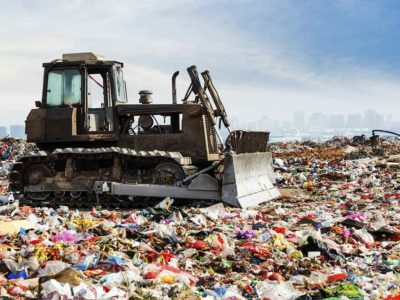Are you ready to switch to reusable and sustainable materials? Here’s why you need to do so immediately to help solve plastic and garbage problems to save the planet in your own way.
RELATED: A Reusable Future and the End of Throwaway Culture
In this article:
- Environmental Degradation and the Use of Plastic
- Banning Plastic Bags
- A Reusable Future
- How to Individually Reduce Plastic Waste
- Invest in a Number of Reusable Bags and Containers to Lessen Plastic Usage
- Minimize or Eliminate the Use of Plastic Materials Within the Family
- Stop Buying Bottled Water and Bring Your Own Instead
- Practice Cooking Frequently at Home to Prevent Using Plastic Takeout Containers
- Recycle Plastic Materials and Old Things to Lessen Waste Materials
- Participate in Clean Up Campaigns in Your Local Community to be Able to Do More
Utilizing Reusable Materials for a Cleaner Environment
Environmental Degradation and the Use of Plastic
The age of oil is also the age of plastic. Since their invention at the end of the 19th century, synthetic, petroleum-based wares have inundated the planet.
They can be found at every level of the biosphere, from micron-sized beads in our body care products to continent-sized gyres in the middle of the oceans.
As we move towards a future powered by renewable energy and grow increasingly aware of the consequences of environmental degradation, a new industry of sustainable, biodegradable materials is emerging.
It’s the one that will one day supplant plastics and radically reduce the waste footprint of modern society.
Banning Plastic Bags
At the time of this writing, dozens of major metropolitan areas worldwide have issued an outright ban on single-use plastic bags and styrofoam containers. In places as diverse as New Delhi, Brisbane, San Francisco, Tokyo, and New York (and even the entire nations like South Africa and Rwanda), hard-won legislation is in place that will phase out these products in a matter of months.
Enforcing the legislation is a different matter – and it will not happen until viable, cost-efficient alternatives are made widely available.
Confusingly, the plastics lobby is attempting to undermine the movement with a disinformation campaign about the supposed benefits of the plastic bag while ignoring the central issue that at the end of their lifecycle, these non-biodegradable products end up in landfills, parks, or, worse, in the ocean.
Despite these attempts, more and more municipalities are choosing to protect their water and natural environment by moving away from plastic bags, styrofoam, and other single-use containers to start their configuration of proper waste disposal.
A Reusable Future
Few companies are already breaking that ground and establishing a foothold in this emerging market with compostable, reusable, and inexpensive containers.
Founded in Portland, one of the first cities to ban the plastic bag and one of the only to effectively enforce that ban, GO Box proposes to hugely cut down on restaurant waste by creating an easy mechanism for customers to drop off their to-go boxes.
It’s already been adopted by nearly 100 restaurants in the area and is in the process of expanding to New York City and San Francisco. It uses an app-based subscription to monitor boxes and reward users for introducing the product to new food vendors.
There is potential for its function to become ubiquitous in its markets within just a few years, and from there, it can easily spread to cities across the country and the world.
Meanwhile, Ecovative, a company in upstate New York that was the recipient of the 2014 Buckminster Fuller Institute Prize, is engineering a new class of biomaterials based on fungal mycelium.
What is mycelium? It is the organic threads that make up the vast majority of the biomass of the organisms we tend to think of as mushrooms.
They aim to replace styrofoam and plastic packing materials by growing mycelial meshworks in the same molds. The process is, of course, more time- and resource-intensive than styrofoam, but it holds the promise of creating materials that are a net positive on the environment, breaking down into rich compost while also being reusable.
Their name is already making noise as an environmental advocate, and they will become more famous if their project is successful.
When then-President Obama legalized industrial hemp at the end of 2015, an entire new industry was given legs overnight. It is likely that oil-based plastics will predominate for the next few decades — but the moonshot ideas of today are tomorrow’s industrial powerhouses.
Hemp is an ideal crop to replace plastics in packaging, trees in paper production, and even concrete and slag in construction. Ventures like Australia’s ZeoForm promise an evolutionary leap forward in materials science, creating products more durable, flexible, and useful than those they propose to replace, along with mitigating the environmental costs of plastics.
These ventures are just the tip of the iceberg: dozens of new companies are cropping up every month aiming to create a plastic-free future, where nearly all waste is organic and able to return to the ground with no damage to the environment.
The day that even one of the major tech companies like Apple, Samsung, and Amazon decides enough is enough and moves their packaging to biomaterials, a new standard will be set — and it will only be a matter of time before the whole industry transitions to a sustainable, waste-free M.O. (modus operandi).
Other options for utilizing reusable materials are still many, so it’s not surprising various advocates will come up with other great ideas to eliminate plastic in the future.
RELATED: Waste Reduction 101: Rethinking Packaging
How to Individually Reduce Plastic Waste
It’s not enough to twiddle our thumbs and wait for the masters of the industry to make a move: Here is a list of things we can do every day to lighten our load and reduce our waste footprint.
1. Invest in a Number of Reusable Bags and Containers to Lessen Plastic Usage
The first and most obvious is investing in reusable grocery bags and containers, shopping, and take-out. These reusable shopping bags last orders-of-magnitude longer than plastic or paper, pay for themselves in convenience, and reduce waste in short order.
Using Mason jars at the bulk section of the supermarket or co-op, which have a standard weight, saves even more packaging and is classy and convenient to boot. Taking to-go boxes or Indian-style tiffins with you when you go out to eat might seem strange at first, but they save a huge amount of waste in the long run.
2. Minimize or Eliminate the Use of Plastic Materials Within the Family
This is a very simple and important step to reduce plastic waste – limiting yourself and the family of the use of plastic products like bags, bottles, and utensils you see at the grocery store.
This way, you are already keeping yourself from contributing to the same pattern of plastic garbage problem and eventually preventing harm to the environment. As much as possible only use plastic products if it’s really necessary.
3. Stop Buying Bottled Water and Bring Your Own Instead
Bottled water is also a major factor in the plastic problem the world is experiencing now. Empty plastic bottles end up on the streets or even in the ocean if not properly disposed of.
Instead of buying plastic bottled water, you can bring a reusable water bottle to easily refill later on. Practice doing this regularly, especially if you are working out outside of your home or you are the type to drink a lot of water.
4. Practice Cooking Frequently at Home to Prevent Using Plastic Takeout Containers
It’s understandable that there are times you want to order food instead of cooking, especially if you are a very busy person and don’t have much time to prep. The problem with outside food, though, is most of them use plastic-based packaging, which will still end up in your garbage bin as waste.
As an environmental advocate, you don’t want to this, right? The only solution needed for this is to force yourself to cook your own food at home.
If you’re the busy type, try meal prepping as this helps save time. When you get home and want to eat dinner, you can easily grab the food you prepped earlier and heat it up.
You can even bring some of your prepared meals to work. Just make sure they are sealed with reusable transport packaging.
This is much easier than starting from scratch to cook your meal.
5. Recycle Plastic Materials and Old Things to Lessen Waste Materials
Recycling has always been a great step to reduce plastic and garbage chaining problem and one of the environmentally-friendly elements of being creative, too. If you have many used plastic bottles at home, for example, you can extract your creative juices and make something out of it, like for home decor or customization.
Do not throw old stuff out right away. Check if there is a useful way to use the items at home.
For example, you can make fashionable and in-style clothing out of your old clothes. Creativity is the key to recycling, so make the most out of what you have available at home.
6. Participate in Clean Up Campaigns in Your Local Community to be Able to Do More
If you know a group or organization, or even an event, that promotes cleaning coastal areas, streets, or any dirty area, actively participate or support them. You will not only help clean the surroundings and manage garbage disposal, but it also contributes to saving the planet.
Aside from that, you will have the chance to meet other people that will help improve your social being or enhance your social flexibility. It’s more fun to clean an area and get rid of the multiple types of garbage problem with people who have the same intentions as you, right?
As citizens and advocates for a better world, it is our duty to help every town, state, and country follow in the footsteps of those who have already begun to use their effort to phase out single-use plastics and utilize multiple reusable materials.
This happens by changing our behavior towards waste, starting petitions, calling your council members, raising awareness in your community, and showing up at public meetings to remind lawmakers of the responsibility we all have to the environment and to future generations to draw down waste and make use of the sustainable solutions already available.
You May Also Like…
Sources for this article:
Editor’s Note: This post was originally published on January 5, 2018, and has been updated for quality and relevancy.




